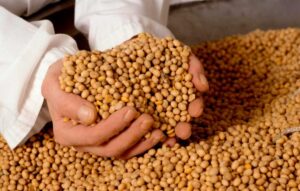
The Cabinet of Ministers has adopted a resolution introducing a mechanism for monitoring soybean and rapeseed exports, according to the press service of the Ministry of Economy, Environment, and Agriculture.
“We are introducing a transparent mechanism that allows producers, rather than intermediaries, to be exempt from export duties. The funds that the state will receive from traders’ duties will replenish a special budget fund and will be directed to programs to support frontline territories, where farmers work in the most difficult conditions, grants for processing, greenhouses, orchards, and insurance against military risks,” said Deputy Minister of Economy, Environment, and Agriculture Taras Vysotsky, whose words are quoted in a statement on the ministry’s website.
The Ministry of Economy noted that the document aims to ensure the fair application of export duty exemptions for certain categories of agricultural producers.
The new procedure establishes a monthly monitoring mechanism to be implemented by the Ministry of Economy to verify the compliance of exported product volumes with the data contained in the State Agrarian Register (SAR) regarding the actual products grown. If discrepancies are found between the declared and actual volumes grown, the Ukrainian Chamber of Commerce and Industry is obliged to cancel the expert conclusions.
“The introduction of such a mechanism ensures that only those exporters who have actually grown the products themselves will benefit from the exemption from export duties,” the ministry added.
The resolution ensures transparent and fair administration of the export duty exemption, prevents abuse during the export of soybeans and rapeseed, provides equal and fair conditions of competition for agricultural producers, and ensures state support for farmers, as only traders, not producers, will pay the duty, the statement said.
The government’s decision is expected to strengthen state control, ensure targeted budget revenues, and contribute to the stability of the agricultural sector. Monitoring will make it possible to simultaneously support conscientious producers and guarantee the replenishment of a special fund for the implementation of key agricultural development programs.
As reported, in September 2025, a law was passed introducing a 10% export duty on soybeans and rapeseed. Agricultural producers and cooperatives that export their own products are exempt from paying the duty. The duty is paid by traders and other exporters who are not producers. The mechanism is aimed at supporting farmers, stimulating domestic processing, and filling a special state budget fund to finance agricultural programs.
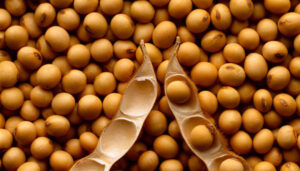
The tenth annual meeting of the Ukraine-EU Association Committee in Trade (ACTA) was held in Brussels, where issues related to Ukraine’s export duties on soybeans and rapeseed, as well as temporary restrictions on the export of unprocessed timber, were discussed, according to the Ministry of Economy, Environment, and Agriculture.
Ukraine informed its partners that a 10% export duty on soybeans and rapeseed was introduced in 2025 to support the development of agricultural processing within the country. At the same time, agricultural producers who export their own products are completely exempt from paying duties. Therefore, the mechanism introduced does not create additional financial costs for them.
“It is precisely through the proceeds from export duties on soybeans and rapeseed that the state will fill a special budget fund, from which programs to support agricultural producers are financed. First and foremost, these are programs for frontline territories, as well as grants for processing, greenhouses, orchards, compensation for agricultural equipment, insurance against military risks, and other key instruments. This allows us to maintain support for farmers even in wartime,” emphasized Deputy Minister of Economy, Environment, and Agriculture Taras Vysotsky.
The meeting participants also discussed decisions on regulating timber exports, including a temporary ban on the export of unprocessed timber (except pine) and the establishment of zero quotas until the end of 2025.
The Ukrainian side stressed that these measures are aimed at meeting the needs of defense and critical infrastructure, as well as reducing risks to the environment in wartime. At the same time, these measures prevent a shortage of raw materials on the domestic market.
It was separately noted that the Verkhovna Rada of Ukraine is considering draft laws on the formation of an updated timber market model, taking into account security challenges.
The Ukrainian side stressed the importance of continuing an open dialogue with the EU on all temporary measures that the state is applying during the period of martial law. At the same time, maintaining access for Ukrainian products to the European market remains one of the key factors for economic stability and support for national production.
The Ukraine-EU Association Committee in Trade Composition (ACTC) was established in accordance with Article 465 (4) of the Association Agreement between Ukraine and the EU to consider issues related to Section IV “Trade and Trade-Related Matters” of the Association Agreement. The CATS operates in accordance with the rules of procedure approved by Decision No. 1/2014 of the Association Council between Ukraine and the EU of 15 December 2014 “On the adoption of the rules of procedure of the Association Council, the Association Committee and its subcommittees”.
The Trade Committee meets annually and includes representatives from Ukraine and the European Commission.
As reported, a 10% export duty on soybeans and rapeseed for traders has been in effect in Ukraine since September 4, 2025. Agricultural producers who export their own products, or agricultural cooperatives that export the products of their members, are exempt from this duty, provided that the origin of the goods is documented. Until 2030, the duty will be reduced by 1% each year until it reaches 5%.
The Cabinet of Ministers has temporarily banned the export of unprocessed wood (except pine) until December 31, 2025, setting a zero quota for its export. This is done to provide the domestic market with raw materials, support Ukrainian woodworking enterprises, and stabilize the industry.
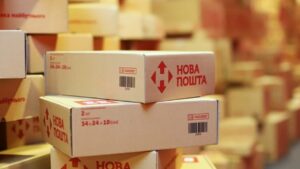
Nova Poshta, Ukraine’s leading express delivery service from the Nova Group, has updated its delivery rules to the US due to Washington’s cancellation of the $800 duty-free threshold: the cost of delivery has increased by at least 10% due to the duty applied to goods from Ukraine.
According to a press release from Nova Poshta on Wednesday, if the sender is the payer, customs clearance services are included in the tariff, while if the recipient is the payer, they will have to pay, in addition to 10% of the cost of the shipment, customs brokerage services starting at $25 per shipment upon receipt.
It is noted that the recipient will be sent an email with a link to pay the customs duty and customs brokerage services. Delivery of the shipment will be carried out after payment, and the final amount of customs duty and customs brokerage services will be determined during customs clearance upon delivery in the United States.
The company emphasized that it is important to correctly indicate the country of origin of the goods in the shipment. The 10% duty rate applies only to goods produced in Ukraine. Rates may vary for goods from other countries.
It is also indicated that a technical solution has been developed for Nova Post API users to select the payer of customs duties for the United States.
On the eve of the announcement, Ihor Smelyansky, CEO of Ukrposhta, Nova Poshta’s main competitor, said that his company would also continue commercial mail deliveries to the US after the country introduced a 10% duty on shipments worth up to $800, and delivery rates to the US will increase by an average of $1.5-3.
According to the CEO of Ukrposhta, Ukrainian senders will have an advantage over competitors from most other countries, as the rate for Ukraine is the lowest at 10%, while for EU countries it is 15% and for Switzerland 39%. In addition, most European countries are pausing shipments to the US until the 10% duty collection procedure is settled.
DUTY, NOVA, NOVA POSHTA, USA
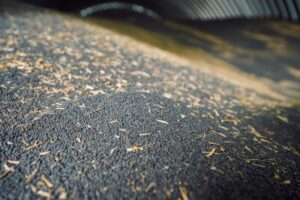
The Chinese authorities will impose a temporary duty of 75.8% on imports of canola seeds (a type of rapeseed) from Canada starting August 14, according to the Xinhua news agency.
This decision was made following an anti-dumping investigation launched in September 2024.
The Ministry of Commerce preliminarily concluded that rapeseed imports from Canada were dumped, that the domestic rapeseed industry suffered material damage, and that there is a causal link between dumping and actual damage.
In this regard, it was decided to introduce temporary anti-dumping measures in the form of safeguard payments.
Quotations for November canola futures on the ICE exchange fell by more than 4% to $650.3 per tonne after the announcement of import duties, according to Reuters.
China is the world’s largest importer of canola and Canada’s main buyer. In 2024, Canada supplied canola worth about $3.6 billion to China.
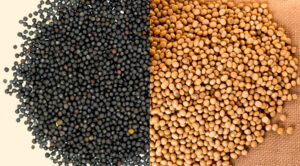
The Verkhovna Rada has supported a bill to introduce a 10% export duty on soybeans, kohlrabi and rapeseed (crushed and uncrushed) with an annual 1% reduction in the rate by 2030, to 5%, MP Serhiy Labaziuk (For the Future parliamentary faction) said in a telegram channel.
The MP added that at the same time a special fund will be created – the State Fund for Support of Agricultural Producers, which, given the existing export volumes (without adjustment for a 10% decrease in value/volumes) of oilseeds, will amount to almost $500 million.
“But with the increase in processing, changes in export prices, and a decrease in the volume of raw materials, revenues will fall. And it will be difficult not to give part of the revenues to the state budget. Therefore, if we manage to raise UAH 3-5 billion for the fund, it will be a victory,” Labaziuk said.
MP Oleksiy Honcharenko (European Solidarity faction) clarified in a Telegram that 245 MPs supported the draft law.
“This is just a shame. They sneaked in the draft law on industrial pollution – duties for farmers. They promised to serve the people, but they serve schemes,” he commented on the document.
As reported, the “soybean amendments” are changes to the Tax Code of Ukraine introduced at the end of 2017. They concerned the procedure for VAT (value-added tax) refunds for soybean and rapeseed exports.
For several years in a row, Stepan Kapshuk, CEO of the Ukroliyaprom association, proposed to ban the export of 50% of the rapeseed crop from the country to increase the utilization of Ukrainian processing capacities, which, in particular in 2024, were significantly short of raw materials.
Subsequently, Dmytro Kysylevskyi, deputy chairman of the parliamentary committee on economic development, prepared draft law No. 13134, which, with amendment No. 40, provided for the introduction of a 10% export duty on rapeseed and soybeans. He argued that Ukrainian soybean and rapeseed processing plants are underutilized by 35%, and if they are used, Ukraine will receive an additional UAH 7.3 billion in state budget revenues to finance the Armed Forces, and an additional $238 million will allow for the construction of dozens of plants and the creation of thousands of new jobs.
A number of associations criticized the idea of the draft law “On Amendments to the Tax Code of Ukraine on Expanding Patient Access to Medicines Subject to Procurement by a Person Authorized to Make Procurement in the Healthcare Sector by Concluding Managed Access Agreements”, which provided for the imposition of duties on the export of soybeans and rapeseed from Ukraine. According to the business associations, they are discriminatory towards small and medium-sized producers, aim to increase the profits of processors at the expense of small and medium-sized farmers and violate the EU-Ukraine Association Agreement.
On June 18, the Verkhovna Rada did not support this initiative.
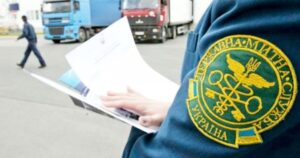
Ukraine continues to strengthen its position in the European transit space. Thus, in the second quarter of 2025, the State Customs Service of Ukraine issued almost 34 thousand transit declarations under the common transit procedure (NCTS). This is 8 thousand more than in the previous quarter and 9 thousand more than in the second quarter of 2024.
This is the highest quarterly increase since Ukraine joined the Convention on a Common Transit Procedure.
More than 23 thousand movements initiated by Ukrainian customs have been successfully completed in the countries party to the Convention. In turn, 10.7 thousand transit movements initiated in other countries were completed in Ukraine, which is almost 50% more than in the previous quarter.
In total, since the start of the international application of the joint transit procedure on October 1, 2022, the State Customs Service has issued almost 196 thousand declarations, of which 149 thousand were issued as a customs office of departure and 47 thousand as a customs office of destination.
In addition, domestic companies are actively using Ukrainian general guarantees in T1 declarations to move transit goods in other countries party to the Convention. For example, in the second quarter of 2025, general guarantees were used in almost 106 thousand T1 declarations transported through the customs territory of the European Union (since January 1, 2025 – more than 183 thousand such declarations).
Regarding guarantees under the common transit procedure, in the second quarter of 2025, the State Customs Service registered 28 general guarantees in the NCTS guarantee management system. As of the beginning of July 2025, 94 general guarantees totaling more than EUR 320 million and 4,947 individual guarantees totaling EUR 218.45 million were in force.
Such dynamics confirms the growth of business confidence in the common transit procedure and demonstrates an increase in the number of foreign economic operators seeking to work in accordance with EU standards.